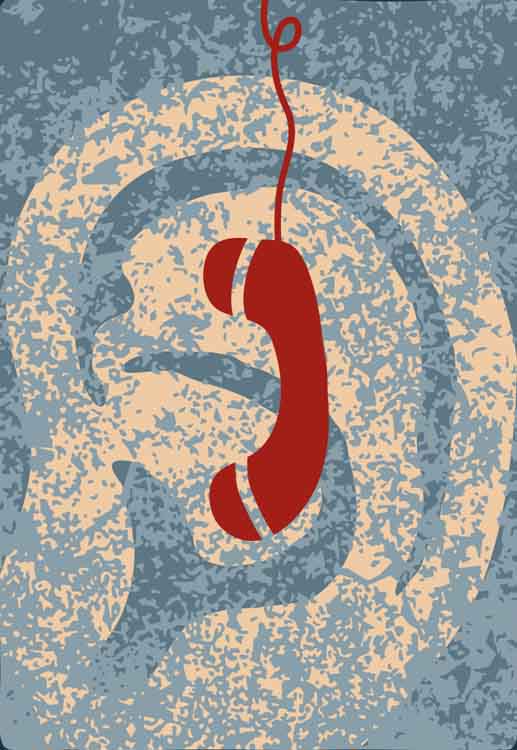Wiretapping, Now a Potent Tool against White-Collar Crimes
1968 was the year when the federal government was first allowed to use wiretapping to record telephone conversations of alleged offenders believed to be involved in drug trafficking and other narco-related crimes. Although there always were mixed opinions about the technique – given the fine line between investigators’ needs and the individual’s privacy rights – wiretapping has started being used extensively in the last two decades.
According to a Forbes article, “the amount of court-issued warrants surging from 1,190 in 2000 to 3,194 in 2010 – a nearly 200% increase.” And if most of the times its use is still reserved to fight violent and organized crime, wiretapping has become a potent tool in high-profile white-collar crimes, as well.
Photo Source: http://media.npr.org/assets/img/2011/05/11/raj-318e4d07fe81a93b1bcf52479803127c3cc2ed45-s40-c85.jpg
Wiretaps played a crucial role in the most famous white-collar case of recent years, leading to the conviction of Galleon Group LLC co-founder Raj Rajaratnam in 2011 for conspiracy and security fraud. Prosecutors alleged the billionaire investor had several ‘corporate tipsters’ that provided him insider information – used to make what seemed at the time extremely inspired business investments – and built their case on a series of telephone conversations recorded over the course of 9 months in 2008.
There were three major conversations that sealed the trader’s fate. First one records a discussion between Rajaratnam and Rajiv Goel, a former Intel representative, about trading shares of People Support, about which he knows exactly when the price will go up, based on a tip from an inside man. The second conversation is between Raj and a former McKinsey executive about an AMD deal, ended with the latter encouraging Raj to buy up the stocks as soon as possible. On the last recording, Raj is discussing with one of his former partners at Galleon, Adam Smith, about a company named Vishay.
All recorded conversations between Rajaratnam and his informants, 45 in all, were essential to his conviction on 14 counts of securities fraud and conspiracy. On October 13, 2011, he was sentenced to 11 years in prison and fined over $150 million in criminal and civil penalties, the harshest-ever punishment imposed in a white-collar case.
Is Wiretapping Necessary?
 According to the federal Wiretap Act, investigators must resort to wiretapping only if conventional investigative techniques prove unfruitful – they must demonstrate exactly how other procedures have failed or would have been too dangerous in those circumstances. The law was recently updated in order to “minimize the interception of communications not otherwise subject to interceptions” and limit unnecessary intrusion into the suspect’s privacy.
According to the federal Wiretap Act, investigators must resort to wiretapping only if conventional investigative techniques prove unfruitful – they must demonstrate exactly how other procedures have failed or would have been too dangerous in those circumstances. The law was recently updated in order to “minimize the interception of communications not otherwise subject to interceptions” and limit unnecessary intrusion into the suspect’s privacy.
Wiretapping is particularly important as part of investigators’ toolbox when the phone is regularly used to conduct criminal activities currently under investigation. Especially when it comes to organized crime and drug-related cases, there are few conventional alternatives for proving offenses, and prosecutors have no trouble showing that wiretapping was indeed needed. In white-collar crime cases, however, especially high-profile ones, regulatory agencies may claim prosecutors are acting with ‘reckless disregard’ of the defendant’s privacy rights and question the legality of wiretaps.
Charges for white-collar crimes are serious criminal accusations that should not be taken lightly. If you have been requested to appear before a Grand Jury in relation to an investigation into such criminal offenses, the experience and talent of a criminal defense lawyer can prove extremely valuable in preparing your case for the proceeding. Call Mr. Weisberg cell phone 24/7 at 773-908-9811 or text ‘LAWYER’ to 25827 to receive a call back.
About the Author
Andrew M. Weisberg is a criminal defense attorney in Chicago, Illinois. A former prosecutor in Cook County, Mr. Weisbergis a member of the Capital Litigation Trial Bar, an elite group of criminal attorneys who are certified by the Illinois Supreme Court to try death penalty cases. He is also a member of the Federal Trial Bar. Mr. Weisberg is a sole practitioner at the Law Offices of Andrew M. Weisberg.







 Blog Home
Blog Home 










